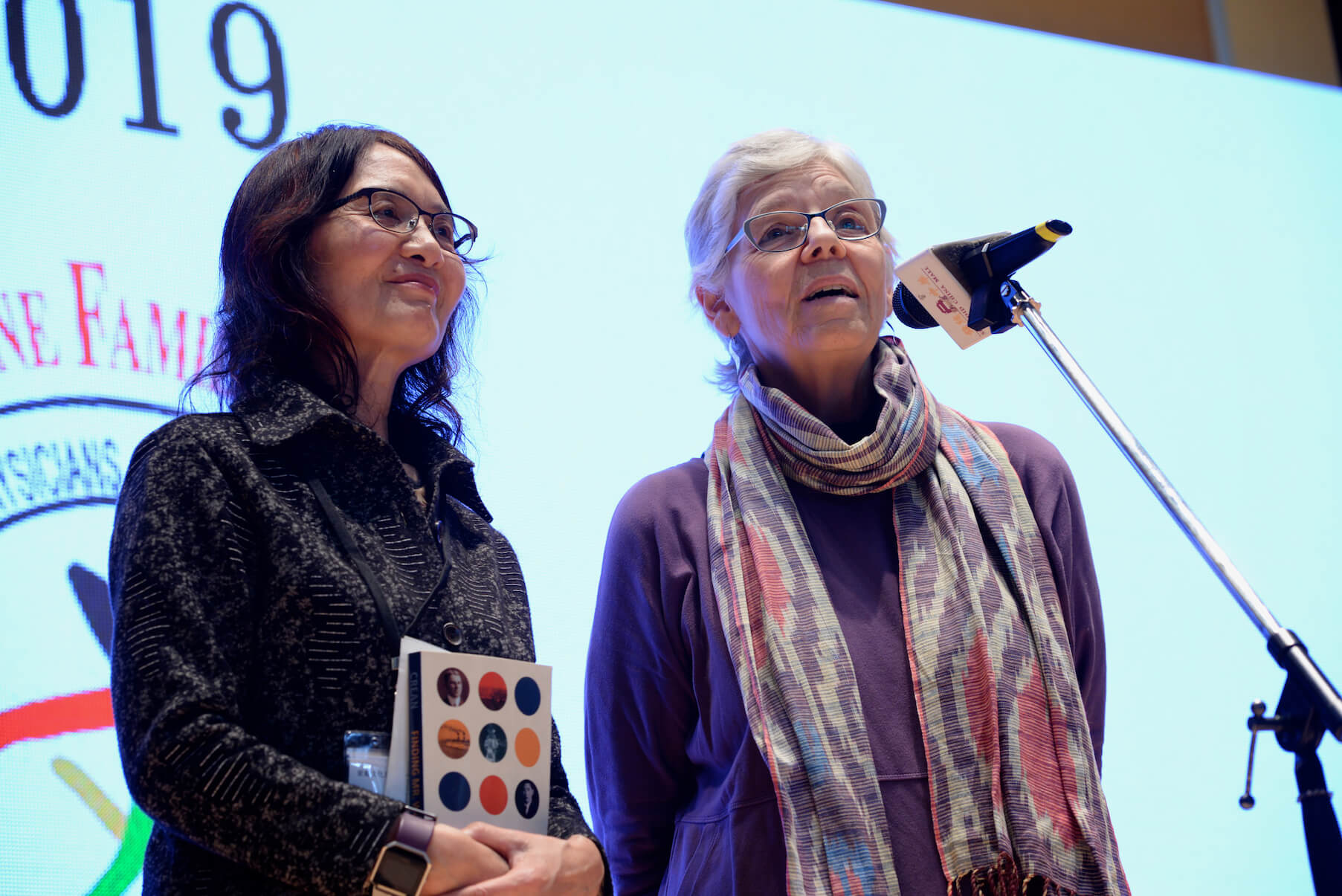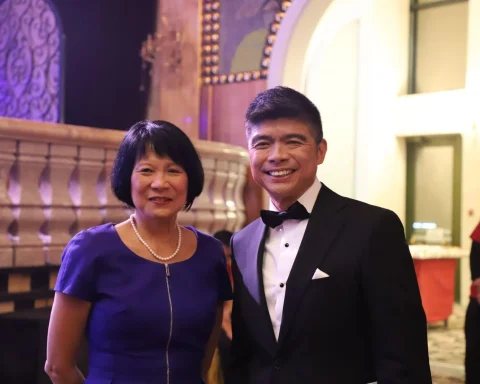A piece of Canadian history brought two award-winning writers together at the Author’s Book Fair during Asian Heritage Month.
In 1885, Federal Parliament passed the Chinese Immigration Act, requiring almost all Chinese entering Canada to pay a fee, later called a head tax. The Chinese Immigration Act discouraged Chinese people from entering Canada after completing the Canadian Pacific Railway. The Chinese Head Tax existed until 1923.
Wong Dong Wong was born in China and emigrated to Canada in 1911. He lived in Vancouver for several years before moving to Toronto where he worked as a domestic cook. He eventually found work with a family and stayed with them for 37 years. Author Susan Crean grew up in the kitchen Wong worked in and knew him very well.

“I was probably a couple of days old when I first met Wong Dong Wong. From then on, he was part of my life, someone I was always in touch with and saw regularly until he died 25 years later,” Crean said. “My earliest memories include him, and, throughout my childhood, he was a source of unending magic.” Wong was her grandparent’s house chef and servant, he also looked after the family. Wong impacted Crean’s life so much he inspired her to write a book called “Finding Mr. Wong.”
For Wong and many others like him, they were invisible to Canadians both in life and after death. Only in 2006 when Stephen Harper’s government issued an official apology for the Chinese Head Tax did Canada’s dark history emerge. Through raising awareness, the public saw how important it is to mandate multiculturalism into Canada’s Charter of Rights and Freedoms.
Crean’s lingering attachment to Wong took no effort to maintain. “The reason for Mr. Wong’s presence in our lives, was anything but pleasant,” she recalled. Crean said “it was the overtly racist immigration laws of the time, specifically the Exclusion Act, which condemned thousands of Chinese men to lives of social isolation and targeted injustice in Canada.” After the 38-year head tax period, Chinese immigration was banned until 1947.

Like Wong did more than 70 years earlier, Lien Chao left China and came to Canada. Chao arrived in 1984 to study Canadian literature, eventually completing an M.A. and Ph.D. degrees at York University.
Chao was invited to host a Q & A with Crean at the popular Splendid China shopping mall in Scarborough. As part of Asian Heritage Month’s book fair event, naturally, the two spoke about “Finding Mr. Wong.”
Chao s an author herself and has written several books on Chinese and Canadian literature and the lives of immigrants. Her research area is very niche and she is one of the few people looking at early Chinese-Canadian writers. Inversely, Crean is a white author writing about an early Chinese immigrant from a unique perspective.
“Writing about Chinese-Canadian history, especially about a labourer who paid a $500 head tax to enter Canada in 1911 and remained a bachelor throughout his life would be a challenge for white Canadian writers. Since 1970s almost all publications in this area have been written by Chinese-Canadian writers,” Chao explained.

When Chao asked Crean about the significance of “Finding Mr. Wong”, Crean replied without hesitation. “There hasn’t been much writing about Chinese domestic workers in white families in early 20th century.” Chao somehow sensed that the book may have pointee to a new direction for writing Canadian history, from a personal self-reflective perspective.
“Susan’s book has laid out historical background about China in the 1850s, and Victoria, Vancouver and Toronto Chinatowns in the 1920s and later. Head Tax, White riots against Asians, etc. Meanwhile, she has also provided the historical background of Ireland in the same period, the potato famine, the exiles, and banishments of overpopulation,” Chao said.

About 20 other Chinese-Canadian writers gathered at the event, most with full-time jobs with not related to writing. Co-organizer Janice Zhang is a perfect embodiment of the passion these writers have for the craft.
Zhang is poet as well as a busy real estate agent in Toronto. She’s a member of the League of Canadian Poets and Chinese Pen Society of Canada, she’s also the principal organizer for literary events in the Chinese community.
“Literature has brightened up my life, so in return, I have been organizing and sponsoring literary events in the past few years,” she explained. Her signature event, the Chinese Canadian Authors Festival, in Toronto has triumphed for five years since 2015. Zhang hopes the book fair provides immigrant authors with a platform share and promote their books.
Zhang didn’t hesitate to buy a copy of “Finding Mr. Wong” at the Book Fair to give peer support. “I think the theme is a very special and well-selected as this is the first book written in English focjusing on a true story of a Chinese Head Tax payer. It records the history which would otherwise be forgotten by the young Chinese-Canadians and our society as a whole,” she added.
Shan is a photojournalist and event photographer based in Toronto with more than a decade of experience. From Beijing Olympic Games to The Dalai Lama in Exile, she has covered a wide range of editorial assignments.





